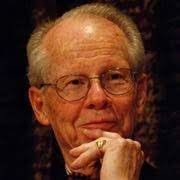Cicourel, Aaron

Bio: (1928-2023) American sociologist. Aaron Cicourel teaches at the University of California, San Diego. He is representative of the ethnomethodological theoretical approach. He studies sociolinguistics, communication in medicine, and the socialization of children. In his book The Social Organization of Juvenile Justice (1968), Cicourel studies deviance in juveniles, primarily social processes that guide the classification of deviant persons, as well as common sense notions that influence the nature of deviant acts and how deviant persons are treated. Analyzing data from two cities in California, Cicourel showed that the police used the common sense theory that children from "broken homes" are more dangerous delinquents.
Children from such homes were detained more often, put on trial more often, and convicted more often. The initial common-sense assumption about the existence of a connection between the type of home and the danger of the delinquent influenced the official statistics, while the standard social science drew from these statistics the wrong conclusion about the existence of the connection between the type of home and delinquency. Since there was the same socio-economic structure of the population in the two studied cities, but also a significant difference in official statistical rates of delinquency, Cicourel concluded that the social and political reaction to delinquent behavior produced differences in official statistics on delinquency. As the response to delinquent behavior was stronger in a city with higher rates of delinquency, interactive relationships of negotiating what constitutes delinquent behavior in that city produced higher levels of registered delinquency.
Theoretical approaches
EthnomethodologyMain works
The Educational Decision-Makers (1963);
Method and Measurement in Sociology (1964);
The Social Organization of Juvenile Justice (1968);
Cognitive Sociology: Language and Meaning in Social Interaction (1974);
Language Use and Classroom Performance (1974).

